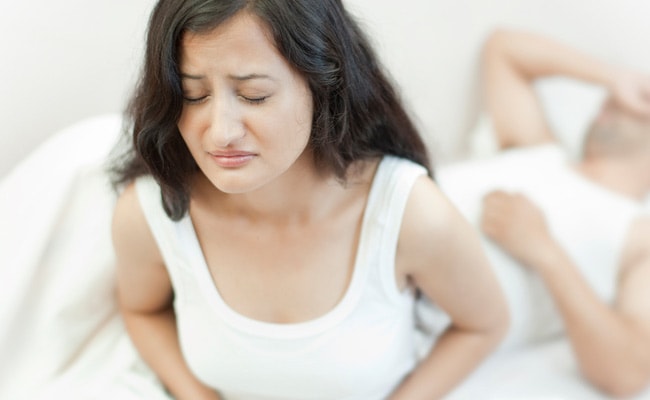PCOD affects more than one in ten women of childbearing age and is characterized by high levels of male hormones in the blood.

PCOD affects more than one in ten women of childbearing age
HIGHLIGHTS
- Maternal obesity and androgen excess induce sex-specific anxiety
- PCOS affects more than one in ten women of childbearing age
- The environmental factors also affected gene expression in the brain
Children born to mothers with polycystic ovary syndrome (PCOS) are at an increased risk of developing anxiety later in life, researchers have discovered. According to the researchers, maternal obesity and androgen excess induce sex-specific anxiety in the offspring. PCOS affects more than one in ten women of childbearing age and is characterized by high levels of male hormones in the blood, menstrual disorders, insulin resistance and obesity.
"The fact that daughters of women with PCOS are at increased risk of developing the condition and that sons often develop obesity and insulin resistance, indicates that the fetal environment plays a crucial role," said lead author Elisabet Stener-Victorin, Professor at the Karolinska Institute.
For the study, published in The FASEB Journal, researchers investigated 16 groups of female and male mice offspring exposed to maternal diet-induced obesity and male hormone excess to study how these environmental factors affected the mice's behaviour as well as gene expression in the brain.
After birth, half of the mice were exposed to high-fat-high-sucrose (HFHS) diet-induced obesity to also investigate the effect of diet in the offspring and the study revealed sex-specific, anxiety-like behaviour in the offspring of both normal-weight and obese pregnant mice exposed to the androgen dihydrotestosterone.
Independent of the mothers' other diet components, female offspring exposed to maternal androgens in utero developed an anxiety-like behaviour.
A HFHS diet after birth did not significantly affect the female mice's behaviour. Male offspring, on the other hand, were unaffected by the elevated maternal androgen levels, but displayed anxiety-like behaviour in response to maternal obesity.
The environmental factors also affected gene expression in the brain.
A number of genes implicated in anxiety were dysregulated in the amygdala and hypothalamus in the brain in a sex-specific manner, the researchers noted.
(This story has not been edited by NDTV staff and is auto-generated from a syndicated feed.)
DoctorNDTV is the one stop site for all your health needs providing the most credible health information, health news and tips with expert advice on healthy living, diet plans, informative videos etc. You can get the most relevant and accurate info you need about health problems like diabetes, cancer, pregnancy, HIV and AIDS, weight loss and many other lifestyle diseases. We have a panel of over 350 experts who help us develop content by giving their valuable inputs and bringing to us the latest in the world of healthcare.














